As the world becomes more complex, we need new solutions. Foundations are positioning themselves with new forms of work and adapted funding activities in order to fulfil their societal role effectively.
‘We must work together to tackle societal challenges, such as climate change and inequality,’ says Judith Schläpfer, Managing Director of the Volkart Foundation. ‘That’s the only way we can develop and implement effective solutions.’ This is why the foundation is increasingly promoting initiatives that network participants from civil society, science, business, politics and administration.

This multidisciplinary solution is crucial in a fast-changing environment. Collaboration has become stronger across the foundation sector, but in Schläpfer’s view it could still be intensified. Sector representatives engage in discussions within working groups to learn from each other, testing out shared project partnerships to boost efficiency. ‘It undoubtedly makes sense not only for project organisations to use partnerships to make their goals a reality, but for foundations such as ours to be open to new, more profitable forms of collaboration,’ she says.
Respect for others

The fact that the foundation sector is looking for new forms of collaboration has been noticed by Nora Wilhelm, co-founder and catalyst at collaboratio helvetica. New forms of collaboration are in collaboratio helvetica’s DNA. ‘Our origins lie in the view that we must learn to work with others if we want to meet the challenges we face today as a society,’ says Wilhelm. This is the only way to achieve systemic change, she believes, it is imperative to take a bottom-up approach in order to achieve sustainability goals.
‘The only way to shape a sustainable, fair future is through participation. A purely top-down approach always leaves certain groups at a disadvantage.’ For this to be a success, an understanding of the ecosystem is required. Everyone has to understand and appreciate their role and those of others. Wilhelm compares this to a body: ‘If I’m the lungs, I do my job, but I don’t need to do the heart’s job at the same time.’ This approach can be challenging, with a new stakeholder quickly being seen as a threat rather than as potential. ‘To ensure this kind of approach is a success, we have to change the paradigm – and also in our schools and economy,’ she says.
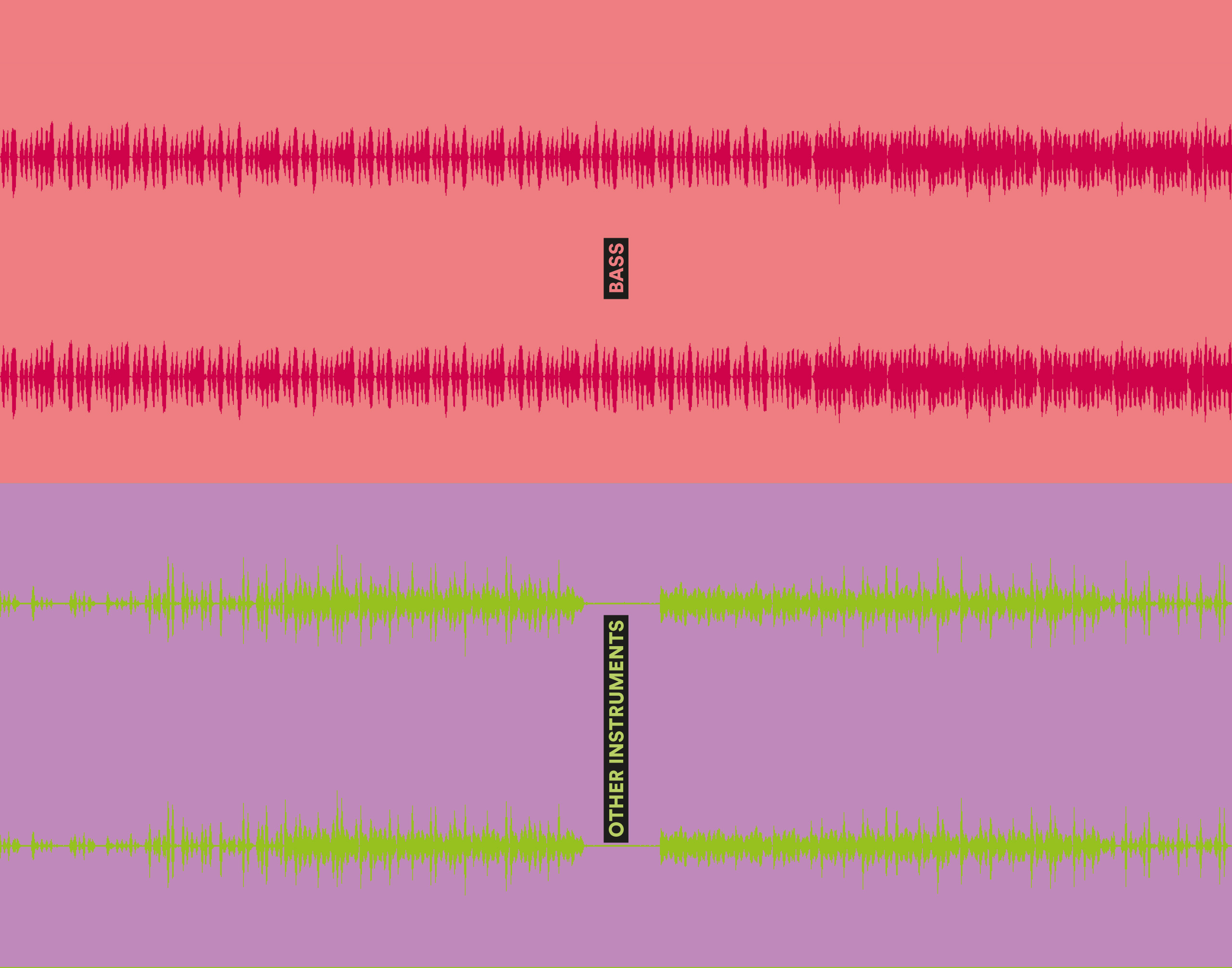
Participatory funding
Despite the desire for new forms of collaboration, putting them into practice poses challenges, even in the non-profit sector. ‘Project owners know that they will always be competing with others for the next batch of money,’ says Wilhelm. This makes discussions more complex, so in order to find new approaches, collaboratio helvetica has run trials of participatory money allocation, where participants evaluate projects themselves. As part of these tests, some projects were merged together, while others were withdrawn in favour of others. Participants worked together to select the best projects for funding. ‘However, we must change how we think if we want to make this approach a reality in the foundation sector,’ says Wilhelm. ‘It needs trust and structural change.’ She also thinks increased collaboration will improve the potential of the application process, which can be very complex. Instead of learning from each other, people isolate themselves. Transparency in general would help here, as would a better error culture. Failures should not be seen as a major issue, but acknowledged. ‘We can learn such a lot from each other in this respect. We should be focusing on learning, not on short-term successes, pre-defined variables and output,’ says Wilhelm. ‘For social innovations in particular, failure must be a possibility. Open-ended experiments take us further, but this approach is uncharted territory for many.’

Open communication
Foundations do not act in isolation: the non-profit concept gives their work a relevance to society and they have to deal with this. Henry Peter, the Head of the Geneva Centre for Philanthropy of the University of Geneva, believes that the call for transparency does not solely come into play between partner organisations: society at large is also making demands in this arena. ‘Donors sometimes have the legitimate desire to make a donation for the common good without being visible themselves,’ he however says, ‘which is, after all, the ultimate expression of genuine altruism.’ While the funds need to originate from a ‘clean’ source, this does not mean that they need have to be publicly disclosed.

In any event, he’s identified a trend towards more open communication in the philanthropic sector, which is gaining in importance against the backdrop of the international situation. While the needs are clearly increasing, the funds available to support the greater good are also rising, sometimes exponentially, says Henry Peter. In the US, above all, people know that immense wealth has come into being in a very short period of time, which often leads to the establishment of foundations backed by assets or income beyond anything previously imaginable. He says that the question of legitimacy has been behind some of these new developments. ‘In recent times, critics have been vocal about the self-interest, inequality and undemocratic exercise of power brought forth by some of these philanthropic initiatives,’ he states. ‘While philanthropy is not always perfect, it more often than not carries values that need to be protected and fostered’. This is part of the field of the research and teaching offered by the Geneva Centre for Philanthropy, whose mission is to accordingly equip academics and practitioners to further study and face the evolving challenges of philanthropy.
A new approach
In Switzerland, foundations are also adapting to societal changes and new expectations of the population.

Peter Brey, director of Fondation Leenaards, which is active in the fields of culture, ageing and society, and science, is only too aware of this: ‘Foundations are increasingly asked to explain who they are, what they do and how they are managed. They also have to quantify the tangible benefits of their activities for the population as a whole.’ He adds: ‘Increasing numbers of foundations are embedding their activities in an open dialogue with beneficiaries and partners, and in a broader societal framework.’
In light of these developments, Fondation Leenaards has also adjusted its strategy. Alongside its traditional funding tools, it has developed a new approach with the help of initiatives. ‘In a society with increasingly complex challenges, it seems essential that we supplement our principle of project-based support with a more general approach that triggers an overall dynamic.’ This apples to the world of science, in particular. In parallel to its traditional funding of biomedicine, Fondation Leenaards launched its ‘Integrative Health and Society’ initiative in 2021 (santeintegra.ch), the objectives of which were set by workshops involving experts from a wide range of fields. They made two observations: more than a third of Swiss people make use of complementary medicine, and at least half of those employed in the healthcare sector provide non-conventional therapy. ‘Nevertheless, it is clear that these two worlds, conventional and complementary medicine, are not sufficiently familiar with each other, which makes integrative patient treatment harder,’ explains Brey. The initiative’s goal is to bring together these two worlds, enhancing the patient’s importance as the protagonist in the treatment process. To support this initiative, the foundation’s funding focuses on several areas: action research projects with methodological support from project owners; a think-tank that brings together patients and therapists with different treatment approaches; a platform for discussions and information. The initiative’s key elements include a population survey, with the findings to be released in the spring. In particular, together with the University of Lausanne’s ColLaboratoire, a participatory approach including both patients and citizens was introduced to survey 3,000 people in western Switzerland in partnership with the Swiss Centre of Expertise in the Social Sciences (FORS). This approach is used by citizen labs that want to identify tangible ways to advance health issues at both an individual and systematic level. Collaborations can go further, involving more and more varied stakeholders: collaboratio helvetica’s mission is to bring together the state, the private sector, civil society and foundations, to support and better network change-makers. It works across sectors to achieve this. ‘But we’re not wholly neutral. We have ethical and sustainable goals and principles that guide us,’ says Wilhelm. However, it does not polarise: it seeks common ground and aims to bring people together, rather than divide them. If a major bank is invited to look at a topic, this may prevent activists from participating – and vice versa – but collaboratio helvetica can bring both groups together.
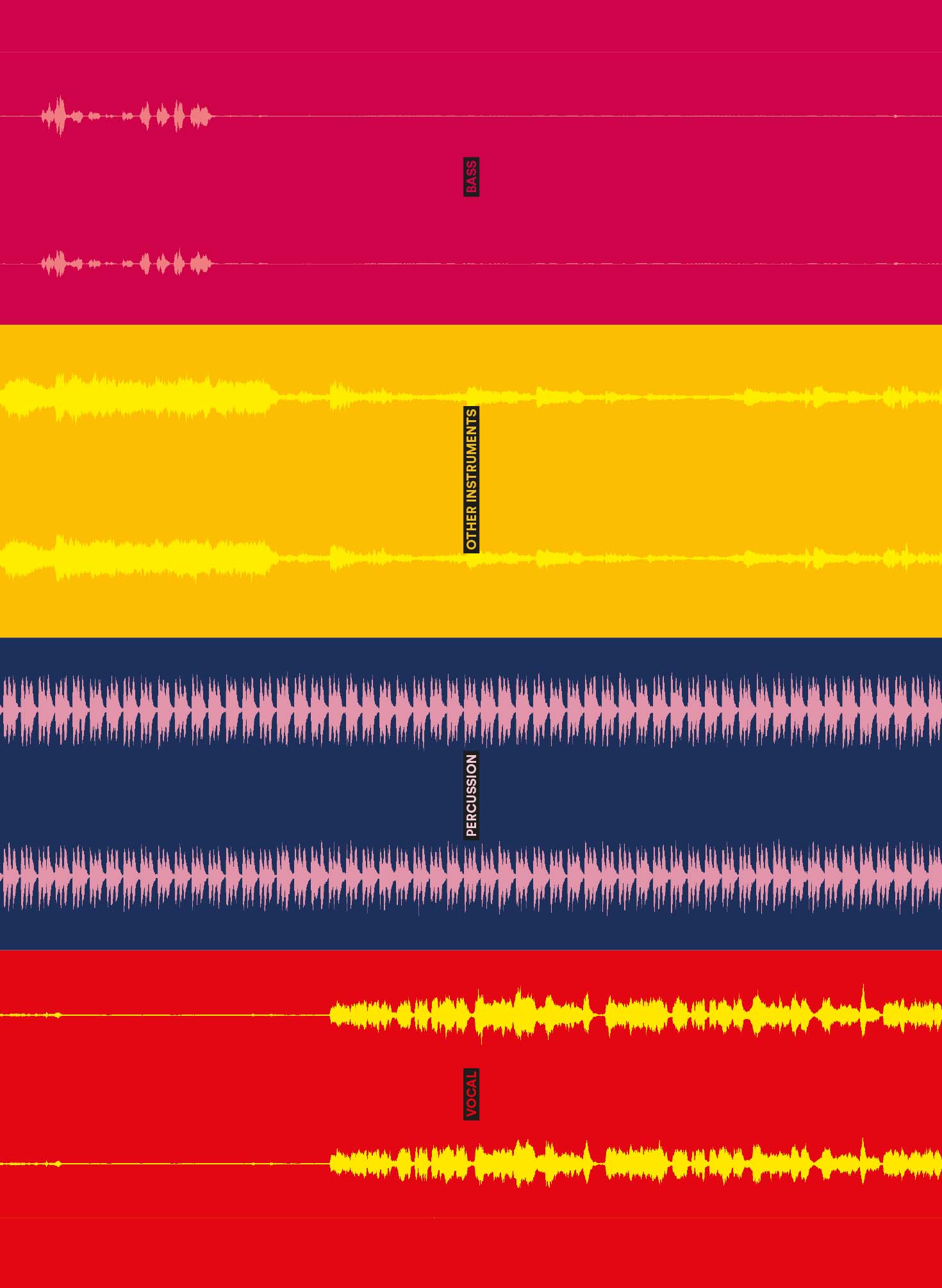
Overarching questions
For Andrew Holland, CEO at Stiftung Mercator Schweiz, it is clear that given the pressing nature of topics such as climate change and social polarisation foundations should work together. Questions resonate throughout the discussion: what will philanthropy look like in the future? Will each entity look at a problem individually, or can we achieve more by working together?
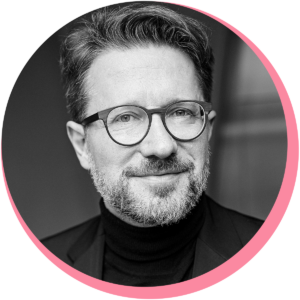
This changes funding activity. Alongside collaborative funding models and systemic approaches, the shift from selective project funding to enhanced structural funding is a key issue for foundations such as Mercator Schweiz. For Holland, this also includes targeted funding for organisational development. ‘If you fund a project, you have a vested interest in supporting a resilient organisation that works effectively and sustainably,’ he says. Mercator Schweiz has long offered its partners support with development as part of its project funding. ‘It’s worked well,’ says Holland, ‘but we realised that people need targeted funding for purely organisational development projects and individual skills.’ For the latter, the foundation has developed services for NGOs, including workshops on agility, social media and design thinking. They provide participants with practical methods and also encourage networking and discussions about their experiences. When it comes to topics such as agility and other new methods of work, in particular, many organisations ask themselves the following question: which are relevant to me? ‘Our training opportunities also help organisations find out whether they would like to explore an issue in more depth,’ explains Holland. In order to give NGOs more targeted support to ensure they can fulfil their important role as stakeholders in civil society, the foundation is further developing its organisational development processes and tools. Mercator Schweiz is planning a survey in order to learn where non-profit organisations are at in their development, what they need and how foundations can offer them effective support. It wants to design and execute this survey in collaboration with other interested grant-making foundations.

Breaking down hierarchies
Peter believes that the charitable sector is well-equipped to handle these new models of work. Foundations are often driven by a growing awareness of values that form part of the charitable sector’s DNA. ‘Also, it can probably be said that most Foundations’ aims overlap with the concept of the Sustainable Development Goals,’ he says. He believes that small organisations with an open culture tend to have an advantage, as it’s easier for them to quickly adopt new forms of collaboration. However, structure isn’t everything. ‘It’s primarily people with skills and conviction that help new forms of collaboration contribute to a more efficient kind of philanthropy, or not, as the case may be,’ he says. This can be seen in the understanding of leadership: where decision-making authority is distributed, collaboration is more efficient and the quality of performance is higher. ‘Plus, employees’ knowledge and soft skills can be used in a better way than in a hierarchical structure,’ he says. Such a shift and elimination of hierarchies is something Stiftung IdéeSport launched two years ago, with the goal of creating an agile, learning-focused organisation.
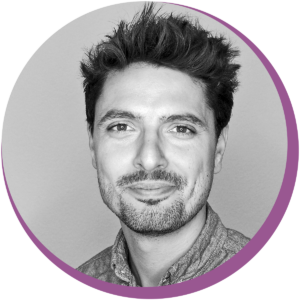
The initial experience has been positive: ‘It’s a form of collaboration that suits us and is fair to our staff, while also challenging them at the same time,’ says Sandro Antonello, organisational developer at IdéeSport. It proved its worth during the coronavirus pandemic, in particular.
But Antonello has some food for thought: ‘It is also a highly demanding form of collaboration that goes hand-in-hand with many challenges. Individual employees and teams have to take on responsibility, make decisions and handle conflicts. That’s not always easy.’ However, employees went to work with enthusiasm: ‘They were so motivated that we had to slow them down to prevent the system from being overwhelmed. That was impressive,’ he says. The fact that IdéeSport is a non-profit organisation helped because an agile organisation also focuses on people and meaningfulness. Its purpose is at its heart. Antonello: ‘Many companies would be happy to have such a starting point from which to launch their agile transformation.’ However, this benefit is also a challenge: since employees set so much store by the question of ‘why’, a common understanding is also vital. To this end, staff at IdéeSport delved into these topics together. ‘However, it is just as important to ensure that all employees find their personal “why”,’ says Antonello. He’s very keen to ensure that employees have the answer to this and look at the entire organisation with a critical eye. This critical exploration encourages dialogue and further development. ‘But, of course, the “whys” should not diverge too much.’ He also clarifies that an agile organisation is not the same as a grassroots democracy; people have assigned responsibilities. ‘The project has been completed, but the transformation and further development are continuing,’ says Antonello. When he says that some measures did not work, it almost sounds positive; after all, that’s part and parcel of it. An iterative process with feedback loops leads to ongoing review and adjustments: ‘That’s why we abolished certain roles and experience silos.’
The limits
Mercator Schweiz is also adopting an iterative process, composed of monitoring, evaluation, learning and adaptation (MELA), on a strategic level. The foundation has introduced agile methods with the aim of staying able to respond to social developments in a flexible, timely manner. ‘Agility is more than flexibility. It’s also about proactive, future-oriented actions,’ says Holland. It has introduced a position for future issues and internal working groups to develop its work further. Mercator Schweiz has had good experiences with this ‘hybrid’ approach – a combination of agile and traditional methods. However, even new ways of working have their limits, as Peter points out: Current legislation was created for a traditional hierarchical approach, and is ever less well-suited to modern models. This means governance is called for. The challenge lies in finding the right model at the right time, with development hindered by how sluggishly adjustments are proceeding. Henry Peter says: ‘As before, good, efficient governance is a key element in every organisation.’
Collaboration where it makes sense
Migros Cultural Percentage and the Migros Pioneer Fund are both pursuing innovative collaboration models with other funding organisations.
Stefan Schöbi is Head of social affairs in the Social Affairs & Culture Department at the Federation of Migros Cooperatives. In his role, he is responsible for the Migros Pioneer Fund and national social projects of Migros Cultural Percentage. He says: ‘Our mandate means that traditionally we have collaborated closely with other civil society stakeholders.’
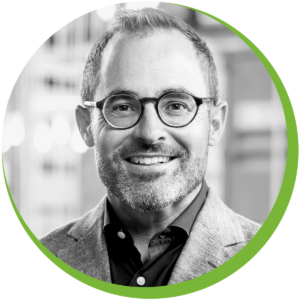
Many of the societal projects are developed and financed cooperatively, in line with the principle of subsidiary. National social projects generally have at least one other partner, whether a foundation or a university of applied sciences. However, this collaboration does not have to exist in parallel. In some cases, the Pioneer Fund takes on projects financed by other funders at the start and then scales them up across Switzerland. This means that funding partnerships can function successively. To illustrate this, Schöbi refers to the Startup Academy, an organisation in which the Gebert Rüf foundation was initially greatly involved before the Pioneer Fund expanded the project. Schöbi thinks there is still potential here: ‘Alignment and compatibility are of central importance. There’s still room for improvement in the foundation and funding sector.’ Conversely, he lists the co-impact model, a form of collaborative philanthropy, as a particularly interesting and inspiring project. ‘Various foundations pool their funds and simultaneously open their portfolios to other co-investors,’ says Schöbi. ‘This is based on a shared thematic and regional focus – in this case, combating poverty in the global south – and shared implementation principles, a kind of methodological toolbox.’ This model is documented transparently and thus individual elements can be extracted. The joint cooperation of funders makes their work targeted, efficient and sustainable. This shared approach shifts the focus away from an individual project and towards a long-term perspective. Despite all the positive effects that Schöbi sees in shared projects, he firmly believes that not every project needs a collaborative model to be a success. ‘The well-known saying applies here: if you want to go fast go alone, but if you want to go far go together.’ He thinks collaborative models are a sensible option in cases where projects have proven their effectiveness and now must be anchored in the long term.
A funding pool
‘After a successful pilot phase, it’s important to scale up projects to achieve a greater reach,’ says Schläpfer. ‘We need pilot projects where people are courageous about trying out new approaches and forging unconventional partnerships. That’s how we acquire knowledge, gain a deeper understanding of complex issues and take a credible stance.’ To broaden the reach of positive changes, the Volkart Foundation’s funding focuses on enabling systemic changes, rather than fighting symptoms on a project-by-project basis. Similarly, a long-term vision and a desire to tackle the root causes also remain indispensable to achieve positive systemic change. That’s why the 70-year-old foundation almost always makes only general operating contributions instead of individual project contributions. This enables organisations to swiftly scale their activities and seize opportunities agilely. The most important success factors in initiating effective systemic change are advocacy work, organisational development, skills development and partnership creation. Schläpfer mentions ChagALL as an example of a successful project – a funding programme to improve equal educational opportunities for young people. Various foundations, including the Volkart Foundation, have jointly supported it for several years. ‘The funding model was revised in such a way that ChagALL was able to use the expertise and experience gained to support similar initiatives,’ says Schläpfer. To this end, a fund financed by several foundations was set up to ensure financial support for these new projects. In 2021, these funding programmes and the associated institutions joined forces to form Allianz Chance+. Together with other foundations, the Volkart Foundation pledged the start-up funding for the Allianz Chance+ association. It combines practical knowledge from funding projects with findings from sociological and educational research. The resulting recommendations for school practice and educational policy are carried by the alliance’s members into politics, administration and the public sphere. This approach enables change at a systemic level.


